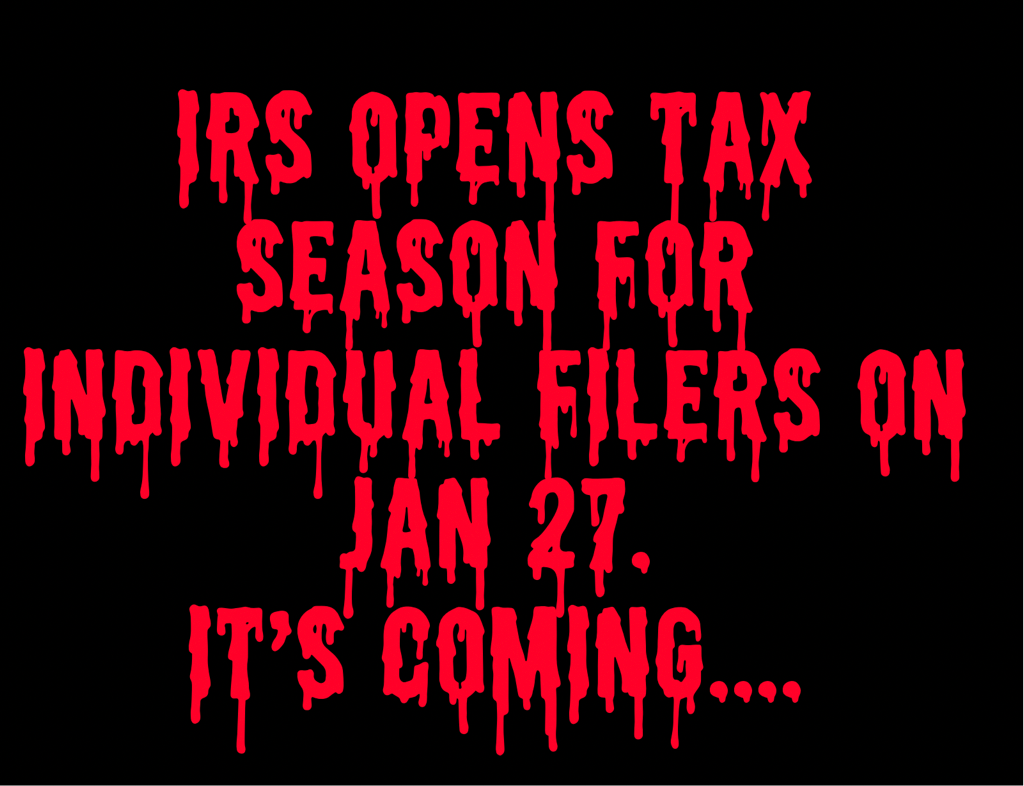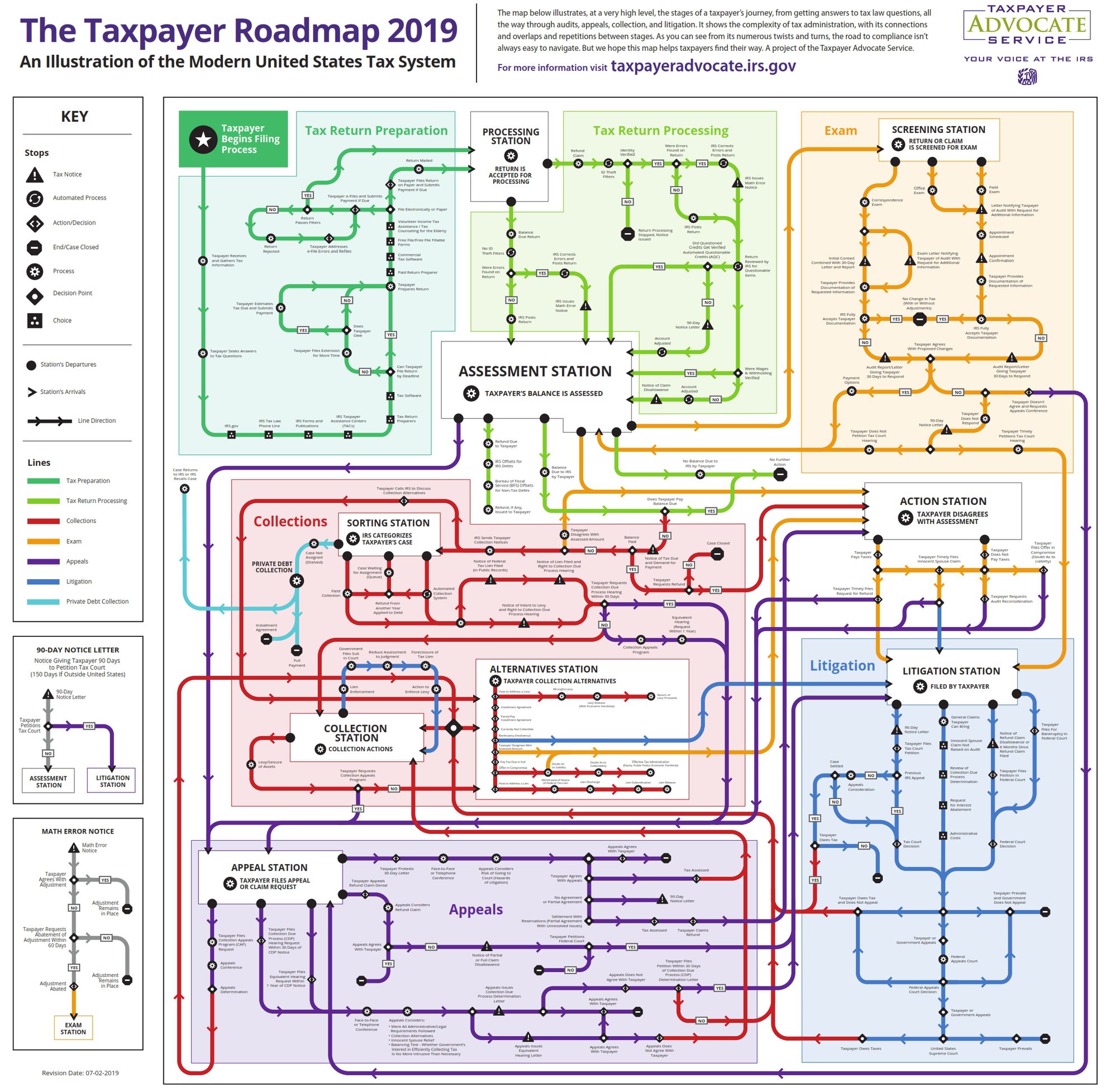They’re coming! Payments are supposed to start “within the next three weeks.” As to exactly what that means, your guess is probably not much better than mine. If you filed a 2018 and/or 2019 tax return and got a refund via direct deposit, your payment will be the first to be rolled out and you don’t have to do anything except wait for it to hit your bank account. But here’s what I know with respect to non-filers and everything else…
- If you are below the threshold for needing to file a tax return and receive Social Security Benefits you will not have to do anything else to receive your payment. It will be automatically posted to the bank account where your receive your Social Security payments.
- If you are below the filing threshold but don’t receive Social Security Benefits you may need to file a “simple” return or possibly a “zero” return. The details of what exactly these returns are and how the IRS wants to accomplish this are not available yet. But this situation will most likely apply to people receiving VA benefits and Social Security Disability payments. Neither of those types of payments are processed through the “regular” Social Security system. Update: Per Eva Rosenberg, the Tax Mama, “All software companies received guidance today (April 6, 2020) for filing returns with $0 tax liability.” Nothing is live yet, but the tax practitioner community will be ready when it is. I expect that low-income taxpayers will be provided with instructions on how to do this via the IRS free-file system. I’ll do a post once I’m sure everything is up and running as well.
- The most important thing to know is that you will not have to pay a return preparer or anyone else to get your EIP! The scammers will be out en masse for this one as will unscrupulous preparers who want to charge you $$$ to ensure you get your payment. I will post an update when I get confirmed information as to how to file for your payment or you can periodically check irs.gov/coronavirus to get information straight from the source! In the meantime, do not respond to calls or e-mails from people offering to help you get your payment! We are supposed to be receiving information on where to report the bad actors, but for obvious reasons, that’s taking a back seat to getting those payments processed.
- If you did not get a refund (if you had a balance due) then the IRS does not have your direct deposit amount on file. Paper checks may take up to 5 months to arrive! In theory, 1) the IRS will start mailing paper checks in May and 2) they are working on an app similar to the “Where’s My Refund” App that would allow you to enter direct deposit information if you prefer to do that rather than to receive a paper check. The latest information I read said that this app would be ready by late April or early May. So I would expect that they will wait to start issuing paper checks until people have had a chance to opt-in to direct deposit via the app. That means if the app is late, the paper checks will be even later. Again, I will post updates as soon as I have reliable information or you can follow along at irs.gov/coronavirus to get information as they update it.
- If the IRS is mailing you a check they may not have your most recent address. Or perhaps you no longer have the account where your most recent refund was direct deposited. Former Taxpayer Advocate, Nina Olson, talks about her concerns with the implementation issues here. Not much we can do right now except to be aware of the potential bumps in the road that could delay your payment. It is really important not to call the IRS to ask about the amount of your payment or when to expect it. They are doing their best to continue to process 2019 returns, issue refunds, continue to work on other taxpayer issues, and to implement this new law. All with many staff working from home and many simply furloughed.
- The additional $500 credit for “dependents” is for dependents who would qualify for the Child Tax Credit in 2020. That means children who turn 17 in 2020 do not qualify. At this time it is unclear if the system will be attempting to calculate payments based on your dependent child/children’s projected age in 2020. In other words, we don’t know if they are just going to look at your 2019 (or 2018) return, see if there’s a qualifying child and give you the $500 or if they are going to “do the math” to see how old that child will be in 2020. Surprise!
- There’s kind of a “donut hole” for adult children in college. They are still dependents on their parents’ returns but they are too old to qualify for the Child Tax Credit. So the parents don’t get $500 but the kids don’t get a $1200 stimulus payment either. Trust me, Congress and the IRS are well aware of this issue by now. Whether or not they decide to address it in future legislation remains to be seen.
- The EIPs are not subject to “offsets” other than child support. If you are behind on your child support, this payment will go towards that. But if you are behind on your taxes, your refund will not be used to offset balances due for federal or state returns.
- This is not taxable income! It’s an “advance” on a refundable tax credit for 2020. That means (if you are a client) we will have to reconcile the amount of your credit received with what you were supposed to get on your 2020 tax return. So please, when you get your payment write down the amount of the credit, the date you got it, and how you got it (direct deposit or by paper check in the mail). If you didn’t get enough credit, the difference will be refunded when you file your 2020 tax return. If you got too much—nothing happens.
Finally, some people are saying “well, this won’t do me much good” and have asked about donating their payments. Of course you can! Here’s a list of some of the places I like to donate (in no particular order):
- Animal Humane Association of New Mexico
- League of Women Voters and League of Women Voters of Central New Mexico
- New Mexico PBS
- New Mexico BioPark Society
- RoadRunner Food Bank
- Seed 2 Need
- Indian Pueblo Cultural Center
- Holocaust & Intolerance Museum of New Mexico
- Pegasus Legal Services for Children
- Choices for Children Day School
I also know that New Mexico’s school districts could use some help because they weren’t ready to pay for the cost of converting everyone to remote learning. The Navajo Nation and many of the pueblos are in dire need of help as well. If you are outside of New Mexico I recommend your local food banks, schools, local PBS, local arts organizations (who may be trying to help performing artists who are out of work), and charities that support your area’s indigenous populations.
Update: If you are reading this after you got my e-mail I just realized I forgot to update the subject line of the e-mail. Same name. Same website. 🙂
This post is mainly for clients to let them know what I will be working on this week in the office.
- The window for filing amended returns for 2016 to claim a refund closes on April 15, 2020. I have one of those to prepare. These must be prepared for paper filing, signed, and mailed so they are time consuming and must be done with a great deal of care. That’s what I’m working on today.
- To date the #taxpro community has not received guidance on an automatic deadline extension (to July 15, 2020) for Form 8938. This form is required if your foreign bank account balances meet certain thresholds. To protect the rights of my clients who may meet those thresholds (basically any client who files an FBAR) I will be filing Form 4868 (Request for Automatic Extension) to ensure that if you are required to file Form 8938 you have until October 15, 2020 to do so. I will be filing those forms this week (hopefully today, but we’ll see).
- I have a client who needs some prior year returns filed to avoid having to file a Tax Court Petition (expensive process). I will be working on those.
- I will be working on returns that have been in my office, mostly completed, for over a month. This includes some returns with multiple state returns, returns with complicated Schedule As (Itemized Deductions), and one estate return that whose extended deadline occurs in May. So if your return came in towards the end of February, or earlier, and you’ve been wondering where it is, it’s being worked on this week and early next week.
- I will be filing returns for those of you who have signed your e-filing authorizations and doing the office paperwork that closes out your return processing.
- I will be doing review & signature appointments for some of you.
- I hope to, by the end of the week (time has been blocked out on Friday), be preparing NM GRT returns for myself and applicable clients.
- I will be doing blog posts to keep you all updated on the Economic Impact Payments (stimulus checks); new rules for RMDs and retirement account distributions; NM State unemployment (plus a little bit for neighboring states in which I have clients); and what’s going on with the new Small Business Administration loans (hot mess) and a new tax credit that could be a better option. The short version is that for most of my Sch C clients your help won’t start until at least this Friday because most of you don’t have W2 employees—it’s just you.
- I have a standing meeting on Tuesday morning and another 2-hour class on the new law Tuesday at noon.
As you can see from this list there’s not a lot of time available for processing “regular” returns. Once the really old, really complex ones are finished, I will be getting back to what is still in the office. The earliest date on those is 3/6. The latest came in around 3/20. A couple may have come in later. If you are reading this, you may have also read the e-mail that says that I work much more slowly without Cat in the office helping. She is doing what she can from her home office and as this situation evolves I am working on processes that allow her to do even more while still maintaining the necessary security precautions.
I am doing my best to continue processing returns on a first-in, first-out basis. I want to thank all of you who have let me know it is OK to extend your returns through October 15th and I will be filing those extensions probably in May (we have until July 15th).
#fullambo out #stayfrosty
Come Monday—it is still not alright. But I am in the office processing returns and I will be available by phone, Zoom, or e-mail if you have questions. I know a lot of you have questions. I did send out a detailed e-mail (via Constant Contact) about the stimulus payments and expect to send out another later this week.
As you can see, a large part of my time is being spent communicating the details of new tax law to you all as a group and to many of you as individuals. This, obviously, slows me down with respect to return processing. Please know I’m working as fast as I can but that, again, I am now focused on “Tax Day” being July 15th. Also, what you may not realize is how much time I am devoting to learning the “fine print” of the new tax law. I thought last year was unprecedented for changing the tax rules in the middle of the game, but Congress said “Hold my beer.” So now I’m learning law that amounts to thousands of pages of new material in addition to how that interacts with certain new human resources law and small business administration loans. I’m not going to lie. Doing this during the off season would be plenty of work. Trying to do it while processing returns and answering questions is nothing short of daunting.
I recently read that 95% of small businesses fail within the first 5 years due to either bad management, under capitalization, or some combination of the two. Tax issues for small business owners have the same roots. Bad record keeping is often a sign of bad management. Mileage is one of the most highly scrutinized and most common areas on which small businesses are examined (audited). If you are a small business owner who isn’t keeping good mileage records you may be leaving money on the table. Worse, if you are audited, legitimate business mileage expenses may be disallowed because of your failure to keep adequate records.
The Self Help tab of the Tax Therapy website (Get Organized and Get Answers) offers additional resources to help you track and substantiate your business mileage. In a nutshell, your business mileage log should be contemporaneous (done at about the same time or shortly after you make the drive) and should show the date of the trip, the business purpose of the trip, and the miles driven. It is really common for people to not record the business purpose of the trip on the mileage log. It’s a lot easier to do this when you record the miles than it is to try to re-build that from an appointment calendar!
Finally, a great way to record your starting and ending odometer readings for your annual mileage total is to take a picture of your odometer with your phone on January 1 and again on December 31. If you haven’t taken a picture of your odometer this year, it’s not too late. It won’t be perfect, but it will be close and it will help you get into a really good habit! I hope that one of your New Year’s Resolutions, if you are a small business owner, is to improve your record keeping! It’s easy to do once you make a habit of it. And it’s one of the simplest ways to make sure your start up stays up!
I mentioned in the last post and the one before that that during tax season we require a non-refundable deposit at the time of your intake appointment. Some of you may be wondering why we do that. The short answer is that one tax season I got burned by several “clients.” They came in during season to have their taxes prepared and when they didn’t like the results or didn’t like the amount of follow up and due diligence I was doing they decided to go elsewhere. This was after I had already done a lot of work on their returns. So 1) I was not paid for my time and 2) I was not able to take on clients who really did want to work with me. Lesson learned.
“Onboarding” makes the process sound super complicated, but it really isn’t. All paid preparers have to do a certain amount of due diligence for each tax client. At a minimum we have to check your ID to ensure you are who you say you are and collect the information necessary to prepare your tax returns. At a new client intake appointment (what happens when you get onboarded during tax season) we do the following:
- ID Check for taxpayers and dependents
- Engagement Letter & Privacy Policy Signed
- Notice Assurance Program Opt In or Out
- Client Interview & Question/Answer Session
- Basic Review of Prior Year Returns
- Collect your W2s, 1099s, and other information needed to prepare your return
- Send you home with a list of missing items and information
During the off season I am happy to meet with potential clients and do an ID check, return review, and basic client interview for free. I am happy to spend some time discussing your needs and expectations.. We then send you a reminder at the beginning of tax season to request an organizer. In the meantime, if you have found someone else or have decided to do your own taxes and don’t call for the organizer, it’s not really a problem. We are sorry we didn’t earn your business, but we understand.
During tax season we are less understanding. The preliminary work required to bring in a new client takes 30 minutes to an hour (sometimes more if the tax situation involves a business or complex investments). During tax season our work time is limited and much more valuable (it’s like surge pricing for Uber). So, if we are going to spend the time getting to know you and your situation we want to make sure that you are serious enough about having us prepare your tax returns that you get all the way through the e-filing process and that if you don’t we still get paid for the time spent processing your return.
I’ve said it before but it bears repeating. Tax Therapy is a small business and this is how I earn my living. I appreciate the opportunity to show you just how valuable a good #taxpro can be but to make my business work, I have to stick to the processes and policies that work for me. Right now we are still accepting new clients with a non-refundable deposit. If you are still looking for a #taxpro and would like to schedule an intake appointment please get in touch!
Still shopping for a #taxpro? Give #TaxTherapy a call!
Are you thinking of going from doing it yourself with box software to hiring someone to help you? Did your preparer from last year retire? Get indicted? Die? Hey! It happens!
Right now we are still taking appointments for potential clients who are evaluating their options. We will be doing this for a few more weeks.
It’s kind of a moving target, but once tax season really gets going (usually shortly after e-filing for individuals opens) we can’t provide appointments for people who are not sure about having us do their tax returns. We will still take new clients (but we have a flexible deadline for that as well) but we will require a non-refundable deposit to schedule an intake appointment and before we start processing your returns.
I know it seems really early but at Tax Therapy the needs of our existing clients are always given top priority. We are a small office (it’s just me and Cat) and we want to make sure that we can do a great (thorough and accurate) job on all of the returns we have in process and expect to have come in during tax season. By the time March 10th rolls around I’m already looking toward moving returns out of the office, rather than bringing them in. And by March 20th or so I’m already making plans for summer notice clinics, extension season, and next filing season!
I answered a few calls last year from people who seemed to really want me to do their taxes but needed to get in right now. That’s just not how this office (and many other small offices work). When I suggested to one such caller that they visit one of the many large franchises in the immediate area, they didn’t want to do that. Unfortunately, if you wait until late March to try to find someone to “do your taxes” that may be your only option. And it isn’t a bad option! Large tax franchises are set up and staffed to meet the immediate needs of most new clients. Most small tax practices are not. So evaluate your needs and if you want to #shoplocal and #shopsmall then you need to shop now!
Are you ready?! We are. Reminder postcards for returning clients and new clients who onboarded over the summer and fall will be mailed tomorrow. On Monday, Cat will be here to start answering calls and e-mails and getting organizers delivered. The organizer contains our annual engagement letter, a copy of our privacy policy, and an interview and other supplemental forms to help you remember and collect all of the information we need to do your tax returns!
If you are reading this and are still looking for a #taxpro, I am still taking “shopping” appointments. Once tax season really gets going though I don’t have the availability to meet with anyone except new and returning clients. If you’re sure here is where you want to be then I’m happy to bring you in as a new client during tax season but I do require a non-refundable deposit to do your onboarding and accept your information for processing. If you aren’t sure or have any questions feel free to call or e-mail the office. We are happy to help.
The IRS is opening e-filing for business returns soon and e-filing for individual returns will open a couple of weeks after that. Here at Tax Therapy we are about ready to open our season for new and existing clients. Existing clients will receive a reminder postcard and e-mail letting them know that they can call to request their annual tax organizer (engagement documents & client interview). New clients can call to get an organizer and set up a new client intake appointment. Please note that new clients coming in during tax season (as opposed to during the summer and fall) must pay a non-refundable deposit equal to the base price of a federal Form 1040 before we will accept their return for processing.
And it’s a doozy! Every year Kelly Phillips Erb (a.k.a. The Tax Girl) posts a list on Forbes.com of the Top 100 Must-Follow Tax Twitter Accounts. For 2020, I’m on it! Mostly this list is for tax professionals (nerds) rather than taxpayers but it is an honor to be included and as you can see, I’m really excited!
I’m also excited that tax season is basically here. I am still accepting new clients. Cat will be ready to send out preliminary paperwork starting the week of January 13th. I will start processing paperwork the following week. That is also the week I expect that the IRS will open e-filing for the 2020 tax season. So if you are looking for a #taxpro, please get in touch.





